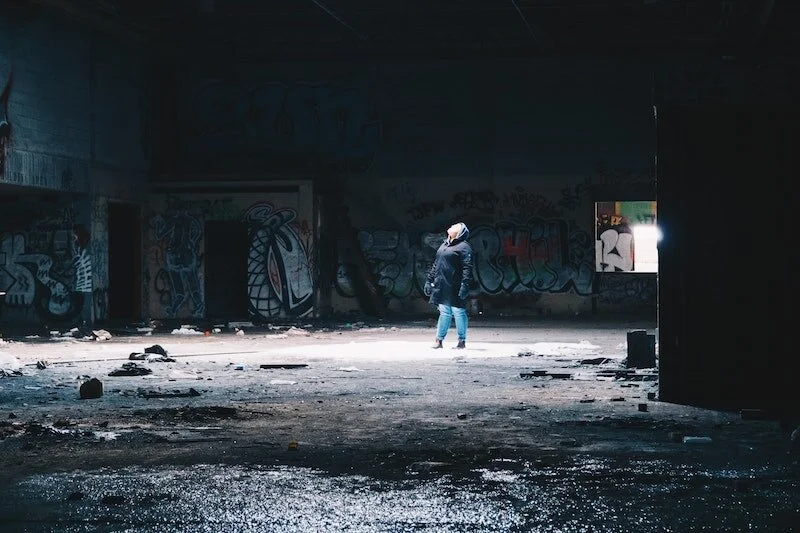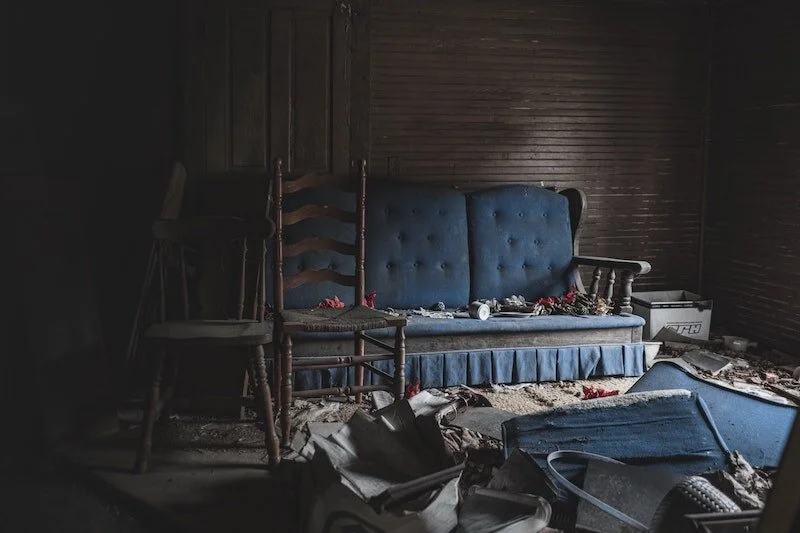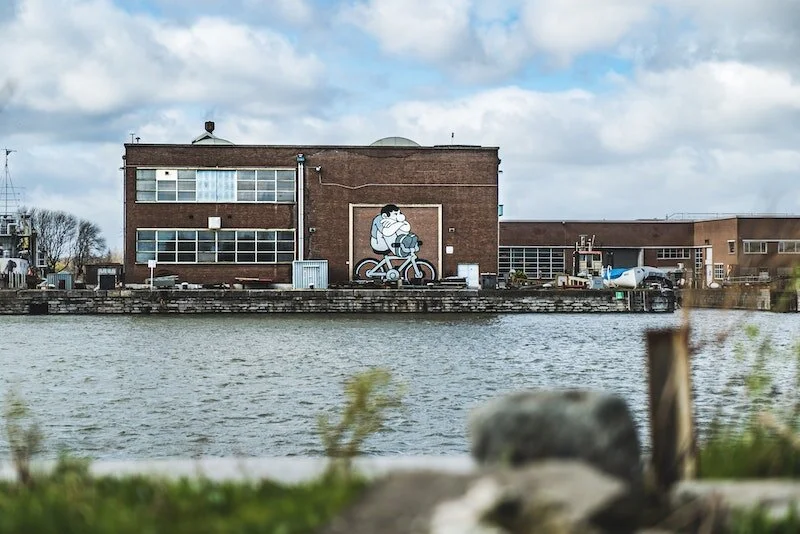According to the latest Home Office Fire and Rescue Incident Statistics, emergency services attended 153,314 fires in total last year. That’s roughly 420 fires a day across the UK, 60 of which are reported to have happened in or next to vacant properties.
Empty properties, whether commercial, dwelling, or industrial, are at far greater risk of fire. The devastating effects of which can leave property owners, their neighbours and local communities with expensive damage to clear up.
Importantly, if you own or manage property you have a liability in law to prevent and protect the property from fire, whether it is vacant or not. So, in this article, we’ve put together everything you need to know to keep your asset, and any visitors or nearby properties, safe from the risk of fire and arson.
Brought to you by Blue Door Property Guardians, the zero-cost vacant property protection service.
Photo by Hermes Rivera on Unsplash
Contents:
The Law on Fire Safety
Why It’s Important to Protect Your Property
Causes of Fire in Vacant Property
Property Protection Options
Fire Safety Checklist
The Law on Fire Safety
The Regulatory Reform (Fire Safety) Order 2005 sets out the minimum fire safety requirements for property owners. Among other requirements, all non-domestic buildings must have a ‘responsible person’ in charge of fire safety. Whether the building is occupied or vacant, the owner of the property has a legal responsibility for the fire safety of the property.
Furthermore, the Occupier Liability Acts of 1957 and 1984 impose a duty of care on to those responsible for properties for visitors and trespassers. As explained in the Fire Safety and Security Code of Practice for the Protection of Empty Buildings, published by the RISC – ‘Depending on the circumstances of an accident suffered by a visitor or trespasser in an empty building, the owner of an empty building could be legally liable for the death of or injury to that person.’
In short, the person responsible for the property, vacant or not, assumes liability for the fire safety of the building.
Photo by Sumit Saharkar on Unsplash
Why It’s Important to Protect Your Property
It might seem obvious, but there might be a few reasons you may not have considered:
It’s your legal responsibility. As we’ve already said, UK law can make a property owner liable if someone is harmed due to hazards on the premise of their empty property (even if they were trespassing).
A fully protected and fire-safe property is far more appealing to potential buyers or future tenants.
Fire damage is expensive and can make your insurance premium rocket. Plus, if you do have a fire, your insurance company will investigate whether the building met proper fire safety regulations which means you are not guaranteed a pay-out.
Most importantly, keeping your property safe from fire protects the people and communities nearby.
Causes of Fire in Vacant Property
Fires can be caused by an enormous range of risk factors, but the most common culprits in vacant properties are:
Arson and Anti-Social Behaviour
Empty buildings are hotspots for crime and anti-social behaviour. Even if you think that your vacant property has nothing to offer to criminals, some trespassers may just be in it for the thrill. So, it’s important to not underestimate the likelihood of Arsonists targeting your building.
We spoke to the London Fire Brigade about the risk of fire and arson to vacant properties and public safety. They commented that:
“Criminals who deliberately start fires are putting lives at risk and put a strain on emergency services. These fires can destroy homes and businesses and quickly spread out of control. One of the best ways to reduce the risk of an arson attack is to make sure your property is secure, including any derelict buildings.”
- A spokesperson from the London Fire Brigade
Others may visit your site looking for shelter - bringing combustible materials with them and even starting fires to stay warm. Either way, once a fire starts, it can easily get out of control in an empty building.
Photo by Giovanni Ribeiro on Unsplash
Pests
Vacant properties are also hotspots for pests, particularly rodents, who have no problem chewing through wires. If they are left unnoticed for prolonged amounts of time, pests have been known to cause enough damage to cause electrical fires.
Negligence
Often, fires in vacant properties are caused by negligence because of the property owner/manager not taking the necessary precautions to keep the empty building safe. For example, faulty fire alarms or sprinkler systems. So, it’s important to know what your responsibilities are, and to make sure you are putting effective fire prevention methods in place.
Property Protection Options
The RISC Authority suggests that an effective way of preventing fire in vacant property is to find a suitable short-term purpose for the building, such as property guardianship.
Property guardianship is a relatively new sub-sector of the security industry, where guardians move into vacant properties in order to provide 24-hour, live-in security and protection against hazards such as fire.
Photo by DESIGNECOLOGIST on Unsplash
At Blue Door Property Guardians, we offer this service at zero-cost to the landlord and have a specific team on hand to help prepare your property to meet safety requirements. We then match your property to our professional guardians, who are licensed on a short term, flexible arrangement to protect your asset.
In conversation with the London Fire Brigade, a spokesperson told us:
“If you’re a business owner … it’s important to make sure that your property is well maintained and any damage is repaired as soon as possible. Any unused or derelict buildings should be secured. If you see anything suspicious, you can report it to Crimestoppers on 0800 555 111 or contact the police on 101. In an emergency, always call 999.”
-A spokesperson from the London Fire Brigade
If your property is going to be vacant for a longer period of time, we highly recommend property guardianship to keep your building safe from fire & arson. You can find out more about the scheme here, or you can register your property and we’ll call you back the same day to discuss your specific questions, needs and requirements.
However, if you are still planning on leaving your property empty, then keep reading to find our fire safety checklist for empty properties.
Fire Safety Checklist
Inform Your Insurer
First things first, always inform your insurer that your property will be empty. Make sure to comply with all of their requirements, including upgrading to Vacant Property Insurance if you need to. Remember, if you are unlucky enough to have a fire, your provider will investigate to ensure you met all requirements needed for a pay-out.
Remove Combustible Materials
A spokesperson from the London Fire Brigade warned that “rubbish and abandoned vehicles are ready sources of fuel for an arsonist and can cause fires to spread quickly to nearby buildings, putting lives at risk, so be mindful when disposing of rubbish and report any illegal fly-tipping, abandoned vehicles or buildings you may be concerned about to your local council.”
We recommend you remove as many combustible materials as possible from the building. e.g. unused furniture, curtains, etc. Plus, make sure to also remove tips and rubbish outside the building that also poses a fire risk. Another suggestion from the RISC is to seal any post boxes to avoid the buildup of paper junk mail.
Photo by Zachary Kadolph on Unsplash
Disconnect Utilities
Disconnect or isolate all services and utilities that are not necessary to the building's function. However, be careful to stay compliant with your insurance provider’s requests. They will often ask that the building is kept at a minimum 4C to avoid freezing water pipes and damage to sprinkler systems.
Smoke Alarms and Sprinklers
If you have smoke alarms and sprinkler systems, check they work fully and properly before locking up the building. If you do not, make sure to install an effective, monitored fire safety alarm system before leaving the building empty.
Photo by Mika Baumeister on Unsplash
Security Measures
Upgrade your security measures to protect your property from vandalism, crime and arson. We recommend boarding up the property and installing timed lights which have been proven to be the most effective single security method. You should also consider CCTV, burglar alarms and manned security, although they come at varying costs.
In Summary
Vacant properties are at high risk of fire, which can be devastating to you and your community, so protecting your building with care and attention to the regulations is important. Not least because you have a legal duty to do so.
However, the costs can add up. From vacant property insurance to monitored fire alarms, empty property safety and protection can become a huge economic drain for the owner.
If you are the owner or manager of a vacant property that is going to be empty for a longer period of time, we recommend looking into property guardianship protection services. After all, the best way to keep a vacant property safe is to not leave it vacant at all.
If you’d like to know more, get in touch today for a chat with a member of the Blue Door team.
Photo by Karina Carvalho on Unsplash








